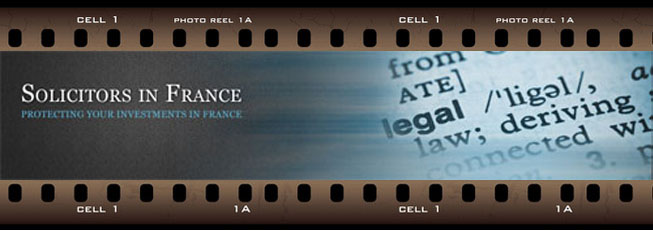
Family Issues, Wills and inheritance are complex issues.
Serious thought and planning needs to be put into the issues of inheritance and Wills as in France you do not have an automatic right or complete freedom with regards to whom you can leave your french property or other french assets to.
French inheritance law does not recognise a husband or wife as a legal heir and therefore does not allow for them to receive an automatic entitlement to your estate – it does however allow for children to have automatic rights to a certain portion of your estate that portion is called Reserve Legale, this percentage varies depending upon the number of children in the family:
- one child could be entitled to one half the estate
- two children could be entitled to one third each
- three children could be entitled to one quarter each
- no children – but surviving parents could qualify as heirs and therfore may be entitled to claim against your estate
The proportion of your estate that you can bequeath is termed Quotit Disponible.
”Show-More”
With such stringent restrictions upon whom you can bequeath your estate to – and the prospect of inheritance tax rates of up to 60%, the situation appears utterly draconian but fortunately there are steps that you can take to minimise (not avoid) such liability. Obviously each case study is different from the next and for that reason one should take legal advise from a specialist lawyer, however in general:
Use of the marital regime Communauté universelle (avec attribution de la communauté conjoint au survivant) – to avoid Reserve Legale and the obligation to pay inheritance tax between spouses. This type of marriage regime is recognised in France and it is held that for french law the general assets of the two spouses are considered to be jointly owned therefore on the death of one the surviving spouse would not be liable to pay inheritance tax on the specified jointly owned assets. However, it should be said that if there are children from previous marriages this rule may not apply in its entirety.
Use of purchase ‘ en tontine’ to avoid Reserve Legale – this is a purchase regime that can be used to purchase property either with your spouse or with whomsoever you choose ‘en tontine’. The property is purchased in such a manner that it is held for the benefit of the surviving partner and upon the death of the first person the surviving party is deemed to have been the owner from the outset. This regime is advantageous in the sense that the property passes from one party to another without Regime Legale being enforced and therby negates any rights of children from previous marriages. Inheritance tax issues will still apply and there may be some complications in the case of divorced people.
Use a company – Société civiles immobilieres – (SCI) for example. As always it is recommended that you take professional advice upon this and take professional advice to deal with any corporate incorporations. A company such as SCI (or other form of corporate entity) would be owned by you and you would have the same control over the property as if you had purchased it in your own name. Although the use of a corporate entity does not avoid inheritance tax it does allow some flexibility as regards how you wish to disburse your estate – this would be a case of company share allocations. There are of course other considerations with corporate entities:
Certain annual legal requirements – filing company documents and /or company returns to the appropriate authorities.
Restriction on what you can do with the property – eg if you wish to let the property to another party – the property has to be let unfurnished otherwise this is a breach of the statutes of a SCI.
If you live in the property yourself it could be classed as a benefit in kind and you may be obliged to declare this to the appropriate tax authorities.
This, is a complex area of french law and affects a great number of people, always take legal advice from a specialist lawyer who will listen to your specific circumstances and you can then together plan the appropriate course of action for you to protect your estate.
Disclaimer: The information contained on this page does not set out to give anything other than a glimpse of certain aspects of this area of French Law. Professional advice should always be sought from a qualified French lawyer.
”Show-Less”
Contact our team for all your legal requirements in France - Contact us
